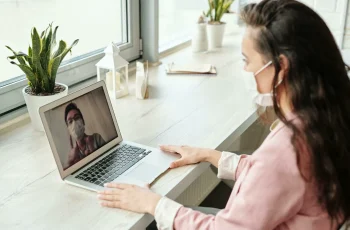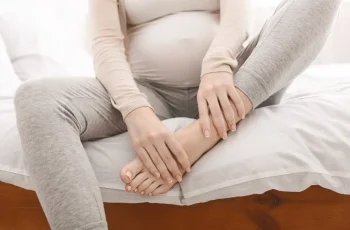Finding the right yoga teacher is an essential step on the path to a meaningful, safe, and effective yoga practice. A teacher can guide not only your physical alignment but also your mental and emotional growth. While luck and timing often play a role in discovering a teacher, understanding what to look for can help ensure that your choice aligns with your needs, goals, and personality.

Why Choosing the Right Teacher Matters
Your yoga teacher shapes your experience, progress, and connection to the practice. A good teacher provides guidance that helps prevent injury, encourages growth, and fosters a sense of balance both on and off the mat. Beyond technical expertise, the teacher-student relationship is a dynamic exchange, built on mutual respect and trust.
For example, a dedicated, experienced instructor can help a beginner manage common issues like stiffness or sleep problems, while simultaneously deepening their understanding of yoga philosophy. The quality of the instruction often determines whether yoga becomes a transformative practice or simply a repetitive physical routine.
The Challenge of Licensing and Certification
In many countries, yoga teaching is not strictly regulated. There is no universal licensing bureau in the United States, which means that credentials alone do not guarantee quality instruction. While certification programs can indicate that a teacher has studied anatomy, physiology, meditation, and philosophy, real-world teaching skills and personal experience remain crucial.
Consequently, students must rely on intuition, observation, and personal experience when evaluating a potential teacher. It is equally important to recognize that a highly certified teacher may not necessarily match your learning style or meet your individual needs.
Observing and Experiencing Classes
One way to assess a teacher is to observe their class. This can provide insight into the teaching style, pacing, and structure. However, observation alone may not be sufficient. Yoga is an experiential practice, and true understanding only arises when participating.
Attending a trial class is often the best approach. Experiencing a session firsthand allows you to feel how the teacher balances physical instruction with mindfulness, engagement, and personalized feedback.
Key Questions to Consider
When evaluating a teacher, consider the following:
- Does the teacher practice what they preach? A teacher who personally engages in the postures, breathing techniques, and meditative practices they teach earns respect and credibility.
- Is the class size manageable? While some instructors excel with large groups, most students benefit from classes of 15–20 participants, ensuring individual attention and guidance.
- Is the teacher knowledgeable? Awareness of human anatomy, movement principles, and safety precautions is essential. A teacher who acknowledges the limits of their knowledge and continues learning demonstrates integrity and professionalism.
Additionally, ask yourself whether the teacher has received training under a mentor. Yoga is traditionally transmitted through personal guidance, and books alone cannot convey the nuance, alignment, and subtlety of practice.
Sensitivity and Adaptability
A great teacher is sensitive to the needs of each student, adjusting instruction according to age, physical ability, and experience. For example, older adults or those new to exercise may require a gentler approach, while younger or more athletic students may benefit from a more challenging pace.
The teacher’s ability to adapt ensures that every student feels supported while also being appropriately challenged. Each participant is unique, and a skilled teacher effectively provides individualized attention even within a group setting.
Medical awareness is another important aspect. A responsible teacher will discreetly inquire about students’ health histories, asking about conditions such as back, knee, or neck issues, recent surgeries, or other concerns. This allows for safe modifications and builds a foundation of trust.
Assessing the Outcome of Classes
The ultimate test of a teacher lies in the impact of their classes. Ask yourself:
- Do you leave feeling refreshed and balanced?
- Are you physically and mentally engaged, without undue strain?
- Do you feel motivated for the next session?
Yoga is designed to create transformation. This may manifest as improved flexibility, strength, mental clarity, or even relief from conditions like insomnia or stress. A good teacher will guide students through progress that is individualized and reflective of personal growth.
Mental resistance can sometimes be stronger than physical challenges, such as reluctance to attend class or difficulty in sustaining concentration. An effective teacher recognizes these hurdles and helps students navigate them with patience and encouragement.
Emotional Connection and Intuition
Equally important is how you feel about the teacher on a personal level. A teacher’s warmth, empathy, humor, and authenticity are critical components of a successful yoga experience. You should feel inspired, safe, and encouraged in their presence.
While technical skill and knowledge are important, the emotional connection often determines whether a student remains committed to their practice. If a teacher resonates with your personality and values, it enhances trust and fosters a more profound, meaningful experience.
Additional Considerations
Other factors to evaluate include:
- Pacing of instruction: Does the teacher adjust sequences for varying skill levels?
- Attention to individual needs: Are modifications offered for injuries or limitations?
- Teaching style: Does the teacher balance physical practice with breathwork and mindfulness?
Observe how the teacher interacts with the class. A skilled instructor guides students to work just hard enough to experience growth without causing discomfort or discouragement. The teacher’s role is to empower, not overwhelm, each participant.
Finding Your Best Fit
The process of finding the right yoga teacher combines observation, trial, and intuition. While luck plays a role, mindful assessment ensures the choice aligns with both your physical needs and personal growth objectives.
Ultimately, a teacher should:
- Demonstrate the practice in their own life
- Provide clear guidance and feedback
- Adapt to each student’s abilities and limitations
- Inspire confidence, curiosity, and joy in practice
When all these qualities align, you are more likely to experience yoga as a transformative and sustaining practice that positively impacts both body and mind.

Conclusion
Selecting the right yoga teacher is a journey that blends personal judgment, experience, and intuition. By observing classes, asking the right questions, and paying attention to your own responses, you can identify a teacher who supports your growth, safety, and engagement.
A strong teacher not only instructs postures and techniques but also embodies the principles of yoga, providing a model for balance, awareness, and mindful living. In the end, the teacher you choose can profoundly influence your yoga journey, helping you cultivate physical strength, mental clarity, and emotional resilience.



